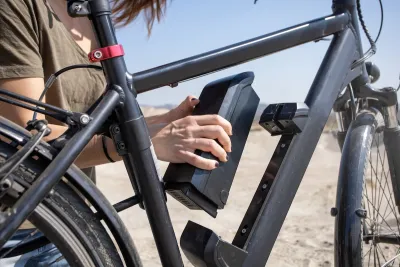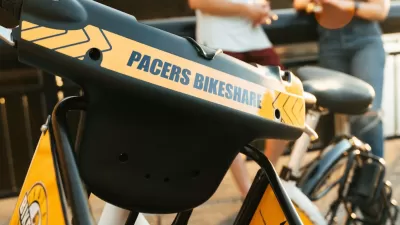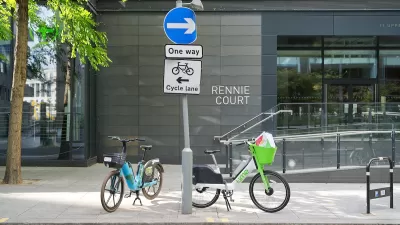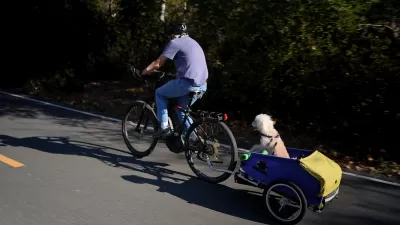Residents can swap depleted batteries for fully charged ones as well as charge and park their devices at two pilot sites.

Jersey City is launching an e-bike and scooter battery swap program, offering residents a way to quickly exchange depleted batteries and reduce the risk of battery fires in indoor settings.
According to a piece by Dan Zukowski in Smart Cities Dive, a pilot program in New York City last year that offered battery swaps to some delivery workers saw 12,000 uses and reduced at-home charging by over one-third.
“The Jersey City battery swapping program, offered at two locations, will allow commuters, delivery workers and other micromobility users to access fully charged batteries that are UL certified as safe.” The sites also offer charging and parking for micromobility devices.
A $3.8 million federal grant from the U.S. Joint Office of Energy and Transportation meant to fund bike parking and battery swapping stations in Jersey City and Minneapolis is on hold after executive actions targeted sustainable transportation programs for elimination.
FULL STORY: Jersey City launches battery swapping program for e-bikes, scooters

Manufactured Crisis: Losing the Nation’s Largest Source of Unsubsidized Affordable Housing
Manufactured housing communities have long been an affordable housing option for millions of people living in the U.S., but that affordability is disappearing rapidly. How did we get here?

Americans May Be Stuck — But Why?
Americans are moving a lot less than they once did, and that is a problem. While Yoni Applebaum, in his highly-publicized article Stuck, gets the reasons badly wrong, it's still important to ask: why are we moving so much less than before?

Research Shows More Roads = More Driving
A national study shows, once again, that increasing road supply induces additional vehicle travel, particularly over the long run.

Judge Halts Enforcement of Anti-Homeless Laws in Grants Pass
The Oregon city will be barred from enforcing two ordinances that prosecute unhoused residents until it increases capacity and accessibility at designated camping sites.

Advancing Sustainability in Los Angeles County Schools
The Los Angeles County Office of Education’s Green Schools Symposium brings together educators, students, and experts to advance sustainability in schools through innovative design, climate resilience strategies, and collaborative learning.

Using Old Oil and Gas Wells for Green Energy Storage
Penn State researchers have found that repurposing abandoned oil and gas wells for geothermal-assisted compressed-air energy storage can boost efficiency, reduce environmental risks, and support clean energy and job transitions.
Urban Design for Planners 1: Software Tools
This six-course series explores essential urban design concepts using open source software and equips planners with the tools they need to participate fully in the urban design process.
Planning for Universal Design
Learn the tools for implementing Universal Design in planning regulations.
City of Moreno Valley
Institute for Housing and Urban Development Studies (IHS)
City of Grandview
Harvard GSD Executive Education
NYU Wagner Graduate School of Public Service
City of Cambridge, Maryland
Newport County Development Council: Connect Greater Newport





























